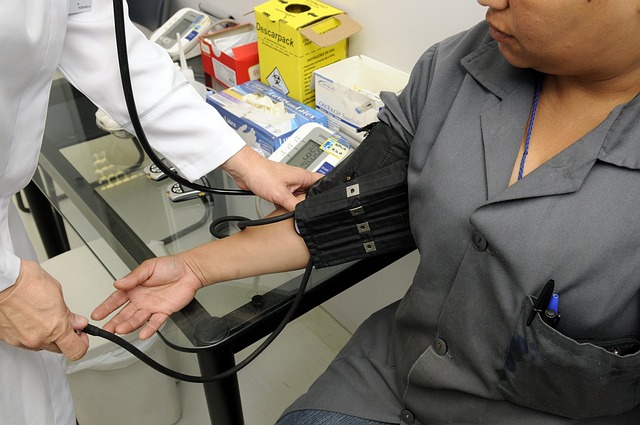Individuals suffering from whiplash and spinal injuries caused by car accidents often require long-term chiropractic rehabilitation. This specialized care aims to restore joint mobility, alleviate pain, and improve overall function through manual adjustments, therapeutic exercises, and lifestyle recommendations. By focusing on the underlying causes of chronic pain, enhancing posture, flexibility, and body movement efficiency, chiropractic rehab facilitates a smooth transition to an active, pain-free life after vehicular accidents. Regular check-ins with healthcare professionals, proactive wellness practices including good posture, regular exercise, and stress management, are crucial for preventing recurrence and minimizing long-term complications.
After a car accident, many victims suffer from long-term whiplash and spine injuries. These conditions can significantly impact daily life and recovery. This article explores effective strategies for managing these persistent issues, focusing on the role of chiropractic rehabilitation in improving outcomes. We delve into practical steps to prevent recurrence and sustain long-term improvement, emphasizing the importance of understanding and addressing post-accident spinal health challenges with specialized care, like long-term chiropractic rehabilitation after car wrecks.
- Understanding Long-Term Whiplash and Spine Injuries After Car Wrecks
- The Role of Chiropractic Rehabilitation in Effective Recovery
- Practical Strategies for Sustaining Long-Term Improvement and Preventing Recurrence
Understanding Long-Term Whiplash and Spine Injuries After Car Wrecks

Long-term whiplash and spine issues are common aftermaths of car accidents, often leading to chronic pain and reduced quality of life. These injuries can result in a range of symptoms, including persistent neck and back pain, headaches, and even radiating pain down extremities. The impact of a car wreck can cause subtle yet significant damage to the body’s delicate musculoskeletal system, particularly the spine and its supporting structures.
Chronic whiplash and spinal injuries often require specialized care, such as long-term chiropractic rehabilitation after car wrecks. Chiropractic treatment focuses on restoring joint mobility, reducing pain, and improving overall function. This holistic approach involves various techniques, including manual adjustments, therapeutic exercises, and lifestyle recommendations, tailored to address the unique needs of each patient’s recovery journey.
The Role of Chiropractic Rehabilitation in Effective Recovery

Chiropractic rehabilitation plays a pivotal role in managing and recovering from long-term whiplash and spine issues often resulting from car accidents. After a car wreck, the initial treatment may focus on acute pain relief and inflammation reduction. However, for lasting recovery, chiropractic rehab is essential. This holistic approach combines various techniques such as adjustments, exercises, and lifestyle modifications to restore spinal function, improve mobility, and strengthen supporting muscles.
Long-term chiropractic rehabilitation after car wrecks isn’t just about easing symptoms; it’s about addressing the underlying causes of chronic pain. Chiropractors tailor rehab plans to individual needs, focusing on improving posture, enhancing flexibility, and retraining the body to move safely and efficiently. This comprehensive strategy facilitates a smoother transition from recovery to a pain-free, active lifestyle, making it a crucial component in managing whiplash and spine issues stemming from vehicular accidents.
Practical Strategies for Sustaining Long-Term Improvement and Preventing Recurrence

Practical Strategies for Sustaining Long-Term Improvement and Preventing Recurrence
After a car wreck, long-term chiropractic rehabilitation is essential to manage whiplash and spine issues effectively. This process involves tailored treatment plans that address not just the immediate pain but also focus on restoring full mobility and strengthening supporting muscles. Regular check-ins with healthcare professionals are crucial to monitor progress and make adjustments as needed. Additionally, adopting a proactive approach to wellness includes maintaining good posture, engaging in regular physical activity suitable for your condition, and practicing stress management techniques like yoga or meditation.
Preventing recurrence requires consistent effort and commitment to these strategies. Incorporating daily stretches and exercises recommended by your chiropractor can help maintain flexibility and strength over time. Avoiding repetitive strains and adopting ergonomic practices at work and home also play a significant role in preventing future injuries. Staying vigilant about any new symptoms and promptly addressing them through chiropractic care ensures ongoing wellness and minimizes the risk of long-term complications after car wrecks.
Long-term chiropractic rehabilitation after car wrecks plays a pivotal role in managing whiplash and spine issues, offering a holistic approach to recovery. By combining understanding with practical strategies, individuals can achieve sustained improvement and actively prevent recurrence. This tailored care ensures not just physical healing, but also a return to an active, pain-free life.














